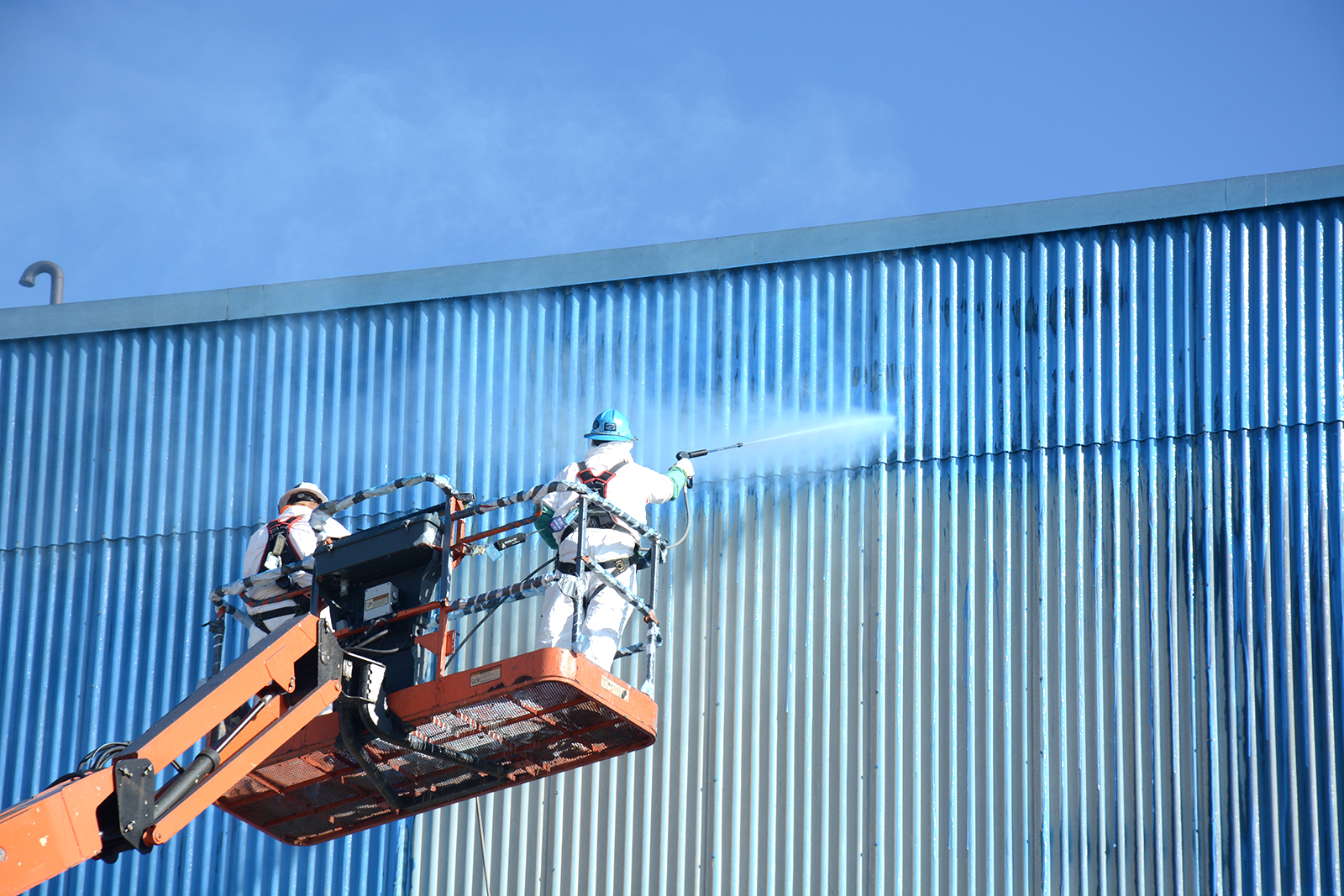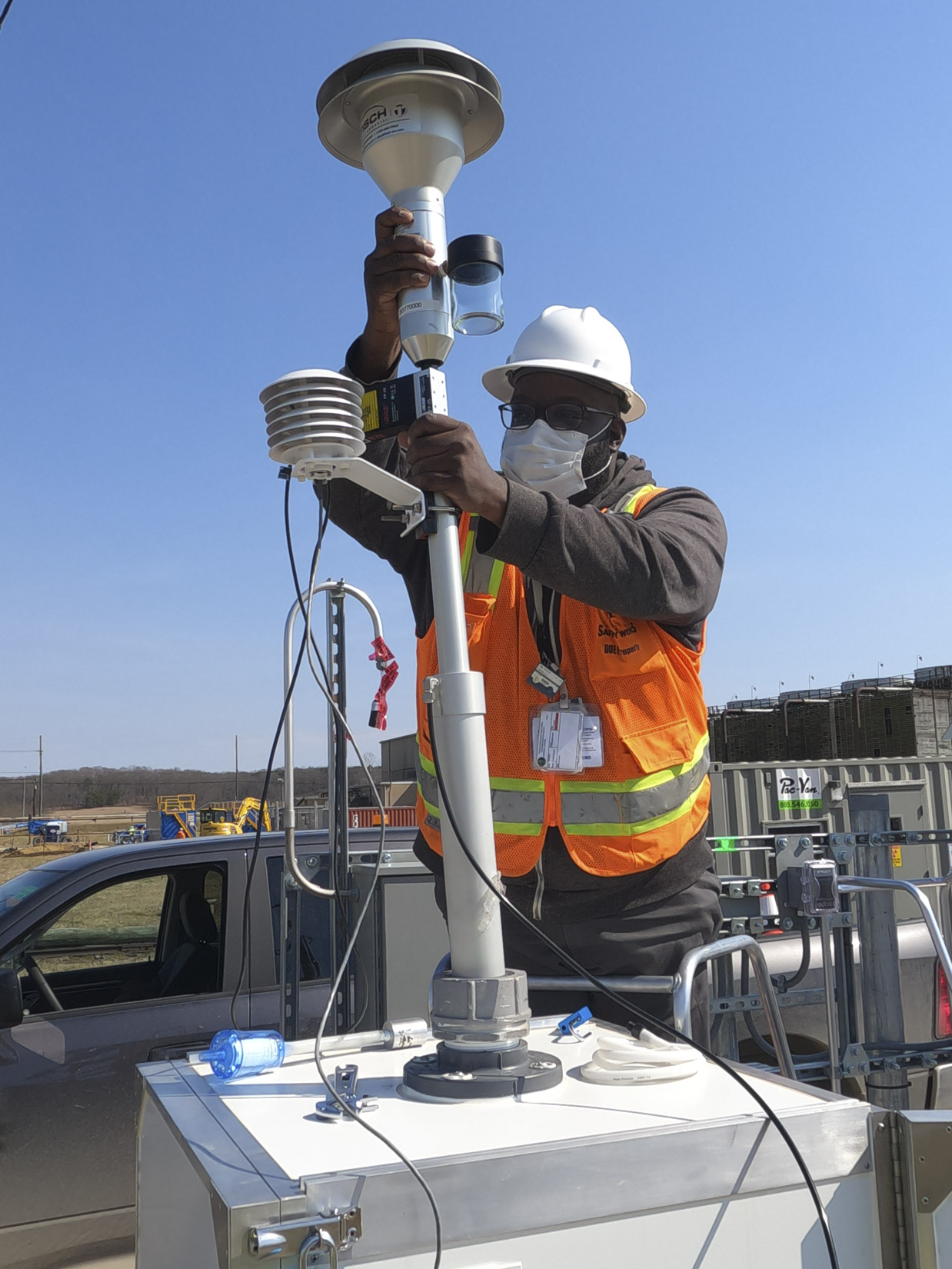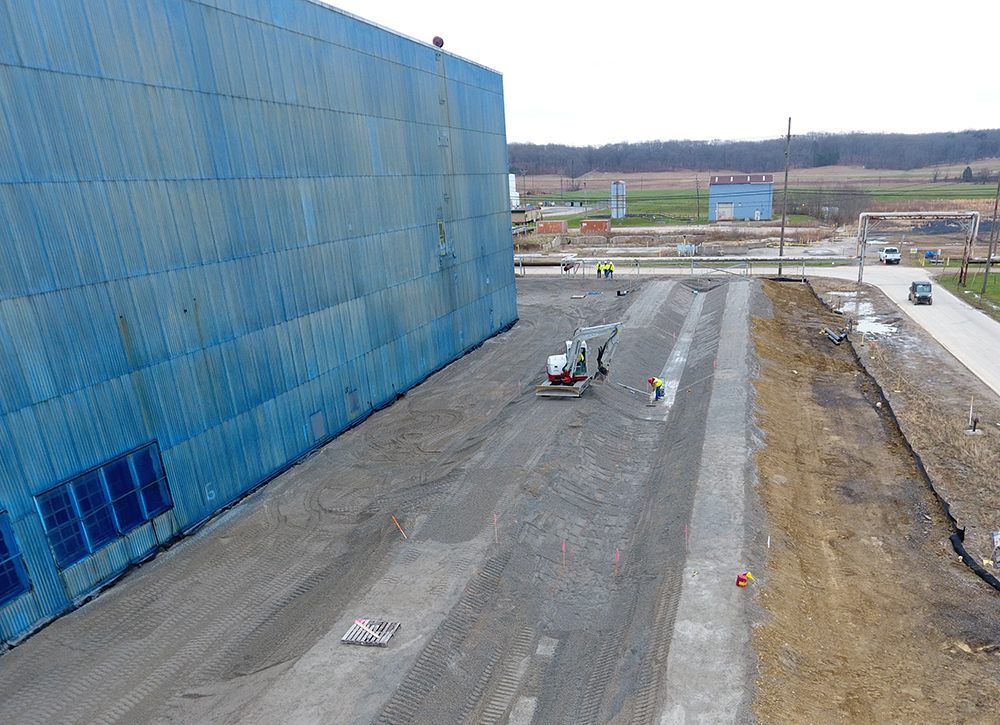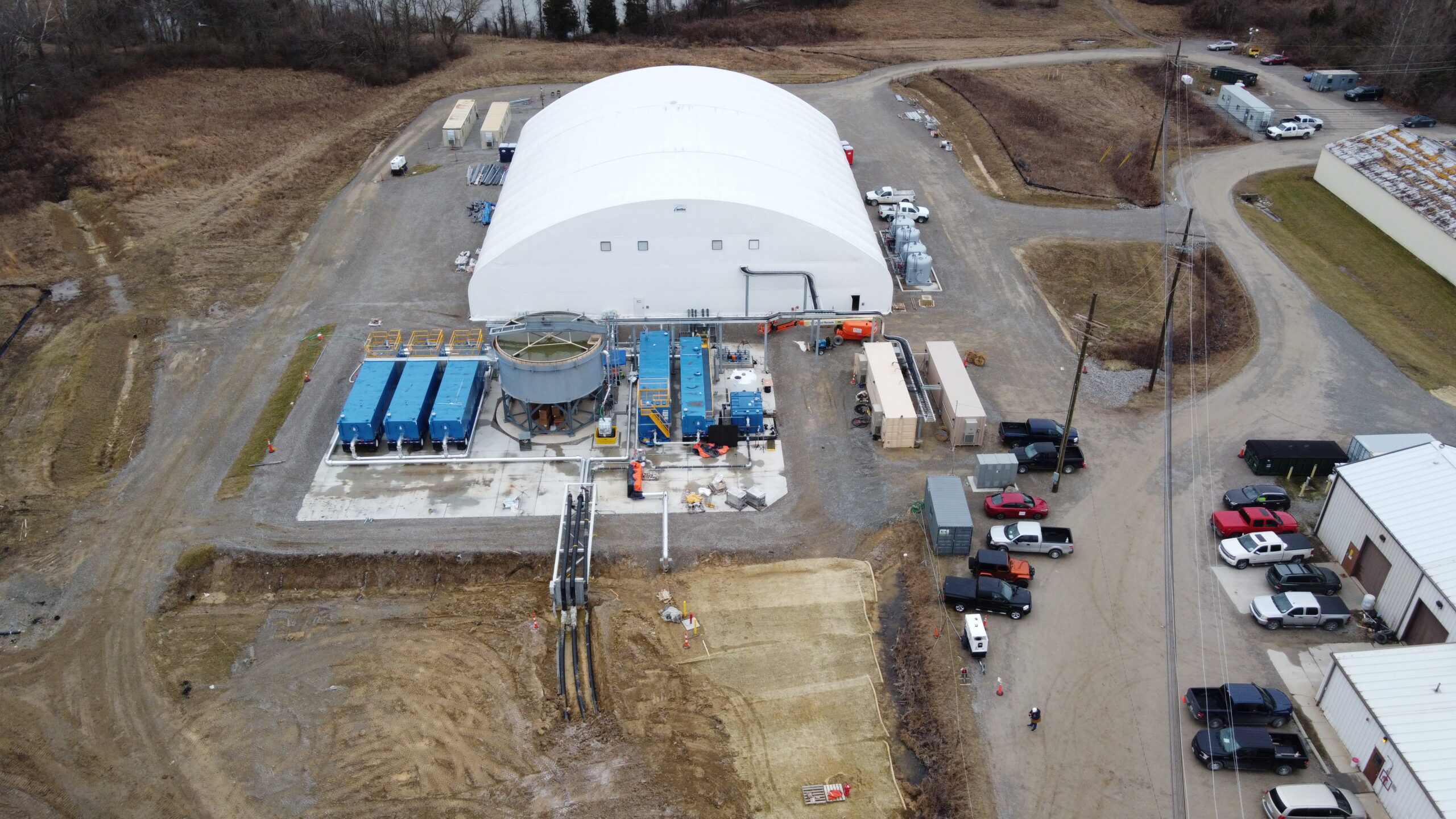Protecting the Air
During demolition, the potential spread of airborne contamination is controlled using a number of methods, including:
- Adhesive fixative applied to the exterior and interior of the building. This substance, which is blue in color, ‘locks down’ potential loose contamination that could be disturbed during demolition.
- Water misters suppress dust during demolition, a standard practice in industrial projects.
- Fixative is also to be applied to piles of demolition debris on the ground.
- Demolition activities will pause if the wind speed reaches a sustained speed of 15 miles per hour at 10 meters in height.
Monitoring the Air
- To ensure that air quality for workers and the public remains safe during demolition, a comprehensive network of air monitors and alarms have been put in place at PORTS to detect if levels of radiological or chemical particulates exceed Ohio EPA or Ohio Department of Health safety levels.
- Real-time air monitors collect data and have alarms to provide a warning if elevated radiation levels are detected.
- Other monitors collect air filter samples on a daily or weekly basis for laboratory analyses to detect specific particulate contamination in the air.
- Monitors are located in various directions and distances from the X-326 building in order to provide sufficient coverage under a wide range of wind conditions during demolition.
- Since demolition began on May 17, 2021 there have been no elevated levels of air contamination above baseline.
Protecting the Water
DOE is meeting its commitment of protecting the water on and around the site through Ohio EPA-approved engineered controls at the X-326 demolition site as well as the On Site Waste Disposal Facility (OSWDF).
Water to be treated includes rainwater and dust-suppression water runoff from the misters X-326 demolition, and rainwater runoff from the OSWDF plus any leachate from the lined, monitored disposal cells there.
- A water detention system was built surrounding the entire X-326 to collect runoff water. The system includes a lined trench directing water to the newly constructed X-622-I Water Treatment Facility, just south of the demolition site.
- The facility is designed to treat the water from X-326 demolition, and X-740 and 5-Unit (including X-231B and X-231A) plume excavation activities.
- Each of the five equalization tanks inside the facility can hold approximately 18,000 gallons of water. These holding tanks detain the water before it heads to the pre-treatment clarifier and then on to the treatment plant where potential contaminants (e.g. metals, solids, volatile organic compounds, uranium and thorium) are removed so the water meets Ohio EPA standards before it is discharged through a permitted outfall.




